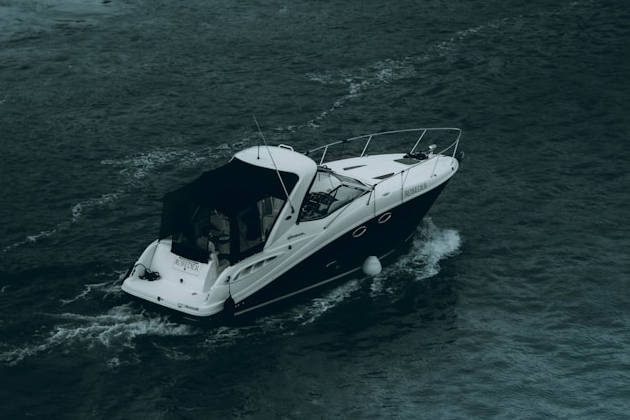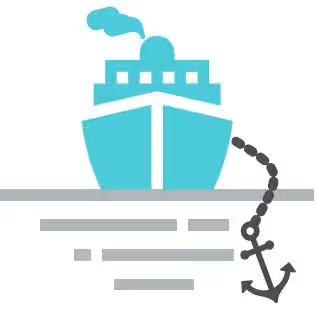Learn how to choose the right boat broker with our comprehensive guide. Discover tips on yacht sales, consignment options, fees, trade-ins, and what to expect during the process. Make informed decisions and avoid common pitfalls.
Okay, so maybe after all this you’ve decided that selling your own boat isn’t for you after all. Perhaps your work schedule is too demanding for you to conveniently meet with the buyers. Perhaps you do not have the temperament to meet the buyers and make the sale.
Maybe you are too emotionally attached to your boat to effectively converse with the buyers. Then again, maybe you loathe your boat so much you cannot look at it and smile long enough to make the sale. In this case in particular, you need the services of a professional.
Boat brokers provide an array of valuable services to both the boat seller and buyer. Boat brokers will create a professionally worded advertisement and then publish this ad at their expense in those places they have found to produce the best responses. They will meet with the buyers, discuss their boating needs and their budget, and drive them around to show them the boats they think will make a good match.
They will solicit offers and serve as a neutral intermediary to assist with the negotiations. They will supply professionally crafted forms to document the deal. They will even arrange for inspections and sea trials, collect the funds, close the deal and deliver a check to you at the end. All they ask in return is 10 percent of the sales price.
For those of you who don’t own large yachts, be aware that most brokers prefer to work at the high end of the market. It takes as much effort to sell a small, relatively inexpensive boat as it does to sell a large, expensive one with a high profit margin. For one thing, advertising costs are about the same, regardless of boat size.
Buyers and sellers of large upscale yachts are not so price sensitive, which makes it that much easier for the broker to negotiate around potential problems in the deal. In the upscale market, it is relatively easy for a broker to get the seller to pay the price of fixing any problems with the boat. It is also easier to get the buyer to raise his offer. Boat owners and buyers at the lower end of the market, on the other hand, often simply do not have the resources required to do what really should be done to the boat. Therefore, Prepare the Boat for the New Ownerrepairs costing a few thousand dollars can be true deal breakers.

Source: unsplash.com
Fortunately, since most of the used boats on the market are at the more modest end of the scale, many professional brokers have to deal in average boats for average buyers whether they want to or not, at least part of the time.
Whether you sell it yourself or use a broker’s services, the same basic boat selling ground rules apply. To Top 7 Secrets to Successfully Sell Your Used Boatsell your boat quickly and get top dollar for it, it has to be in top-notch condition, no matter who is doing the selling. Do not expect a broker to somehow be able to overcome this requirement and pass off your dirty, broken boat on a buyer for a decent price.
This can be a touchy issue for brokers and some boat owners. It’s hard to tell someone that his boat is a dirty rundown piece of junk and still maintain a business relationship with him. If the broker looks at the seller’s boat and decides that it has market potential even though it needs attention, he will list the boat and drop a few hints to the seller to try to get him to clean it up and fix the problems. If the seller doesn’t respond, the broker may let the market deliver some feedback, i. e., when the frustrated seller calls and asks why the boat hasn’t sold, the broker will drop a few more hints encouraging him to get the boat into good condition.
Avoid all this time-wasting dancing around. Get the broker to tell you what you need to do to make your boat appeal to the buyers, and get it done. The broker sees a lot of boats and tends to see things through the eyes of his customers. His advice will be valuable. Listen to his recommendations and take heed.
Yacht Brokers, Boat Salesmen, Used-boat Dealers, etc.
A yacht broker is a state licensed, regulated, professional boat salesman. In Florida, you must have a state yacht broker’s license to professionally sell boats that are longer than 32 feet. This license must be renewed every two years. Therefore, if the broker misbehaves and serious complaints are filed against him, the state may refuse to renew his license, thus barring him from doing business. Note that there are a few exceptions to this licensing requirement.
In Florida no state license is required to sell boats that are less than 32 feet long. Sellers of these smaller boats may be required to obtain a local business license, but there is no government-based consumer protection associated with that license.
For the purpose of clarity, I will use the term “broker” in the remainder of this discussion to refer to whatever category of professional boat salesman you may hire to help you sell your boat.
Consignment Sales
“Consignment” refers to an arrangement in which you physically locate your boat on a broker’s lot and your boat is presented for sale along with other boats the broker has for sale. This offers buyers the great convenience of one-stop shopping for used boats. Consignment lots tend to serve the more affordably priced segment of the market.

Brokers who sell from a consignment lot make arrangements to keep the boats spruced up periodically. They will have someone come around and wash them off, check and charge the batteries, run the engines and generally look after the boats while they are on the lot. Insurance arrangements for losses vary.
Be sure to ask whether the broker carries coverage for losses from fire, theft and vandalism while your boat is in his possession. If not, make the necessary arrangements to protect yourself from loss.
Selecting a Broker
The most important consideration when selecting a broker is his integrity and reputation. Look for a broker who has roots in the community. The number one serious problem people have with brokers is with the fly-by-night operators who collect a pile of deposits and escrow payments and then scram.
Next, do a little boat shopping in your area and see who is running the most visible, highest-quality ads. Find out who is generating the most buzz in the market, and who seems to have the most attractive boats for sale.
Read also: Expert Tips for Negotiating a Boat Purchase
Finally, meet with the broker and see if the two of you get along and communicate well. During the course of your business together, you may need some serious discussions, and these will go more smoothly if you are dealing with someone you understand and who understands you.
Review the broker’s business policies and listing agreement. Be sure you can live with his terms.
Perils
Again, the majority of complaints regarding brokers stem from the fly-by-night operators who are little better than thieves. Be aware, though, that there are also brokers out there who will undersell a client’s boat in an effort to make some easy money. Suppose, for example, you list your boat with a broker and tell him you need to sell it for at least $20 000, netting you $18 000 after commission.
If, however, he has your Make the Essential Paperwork for Boat Sellingsigned Certificate of Title, he can easily undersell your boat without your permission, for say $12 000, and then claim it was all just a misunderstanding. He hands you a check for $10 800 and says goodbye. And there’s little if anything you can do about it.
To avoid this kind of situation, keep the Certificate of Title in your possession until the broker has a written deal, a deposit in the bank, and is ready to close. Be prepared to give the broker a copy of your Certificate of Title when you list your boat so that he can verify that you are indeed the owner and the boat is not encumbered by liens.
Fees and Common Arrangements
Again, the standard fee for a broker’s services is a commission of 10 percent of the sales price, paid to the broker at closing. The broker usually conducts the closing, collects the buyer’s money and deducts his fee before he delivers the remainder of the proceeds to the seller. None of the brokers I interviewed charged any up front listing fees.
Most brokers will have a minimum commission ranging from a low of $1 000 to a high of $5 000, although that can vary quite a bit depending on the market. A $1 000 minimum commission normally means that the broker will not list and sell a boat with a price below $10 000. A $5 000 minimum commission means that the broker simply will not list and sell a boat priced below, well … hmmm … $50 000.
Sometimes the broker will take on a smaller boat and try to sell it if he is allowed the opportunity to make a bigger percentage on the deal.
In addition to these basic percentages, some consignment lots will charge rent while displaying your boat on their property. Many consignment brokers offer the seller a month or two of rent-free display, and then start charging monthly after that. What they are trying to do here is strike a balance. On the one hand, they want to keep the lot filled with nice looking, desirable boats. On the other, they want to discourage sellers who are asking way too much for their boats or people who are simply looking for free or low-cost boat storage.
The Process
Be aware that when you list your boat with a broker, he is going to be taking a critical look at your boat. Brokers do not want to waste their time and money advertising a boat with obvious, serious problems. They also do not want to have to deal with an irate buyer because a major problem surfaced with a boat shortly after the sale.
Brokers see a lot of boats, and they are pretty good at sizing them up. Pre-screening and pre-qualifying boats is one of the many services brokers offer that benefits buyers. Brokers will almost always advise buyers to have a marine survey or mechanical inspection done prior to closing. Don’t approach a broker with the idea of passing something serious by him without his noticing. You probably won’t get away with it.
Once a broker has decided that your boat is worth the trouble of trying to sell, the next step is to decide what it is worth. The broker will use many of the same steps explained in How to Choose the Best Selling Price for Your Boat“How to Determine the Selling Price of Your Boat or Yacht” to arrive at a starting point. Then, using this information plus his knowledge of the local market and the mood of the buyers, he will decide what he thinks your boat will fetch. He may pad this with a little room to negotiate and arrive at what he considers a reasonable listing price for your boat.
As part of this process, he will also ask you what you expect to get for the boat, reconciling any discrepancies that the two of you might have. With this in mind, it’s not a bad idea to do a little market research of your own in advance so you can be sure the broker’s price is a reasonable one. Only after you and the broker have agreed on the boat’s market value can he proceed to take your boat and list it.
At this point the broker will have a listing agreement for you to sign. The usual term is six months, since brokers feel that if they write the ads and pay to publish them, they deserve a fair amount of time to try to capitalize on their effort by closing a sale on your boat and collecting a commission. Some brokers will allow you to break the agreement upon 30 days written notice of your dissatisfaction, others will not. Some brokers will split the commission if you locate a buyer during the term of the listing contract. Others will not.
Once the listing agreement is completed, the broker will compose an advertisement and publish it where he believes it will get the best response. When buyers call or come by the office, the broker will discuss their boating needs and budget, and select the boats from his listings that he thinks will be a good match. Before taking a buyer to see a boat, the broker will call the owner to give him a chance to make sure the boat is clean and uncluttered by the time he and the buyer arrive.
Reasonable Expectations
When you list your boat with a broker, don’t make the mistake of thinking that the broker is your personal hired gun. The broker is in business to make a living and will allocate his time and effort toward that end. Remember, the broker works for the broker. In fact, if the broker is going to tilt a deal in favor of one party or the other, he will tend to see things from the point of view of the buyer. The reason for this is that the small amount of extra commission he might earn by getting top dollar for a boat is not worth the risk of losing the buyer.
From his point of view, any offer he can get you to accept is a great one, and any offer that you will not accept doesn’t get the job done. It is perfectly fair for him to try out offers on you that you might not find entirely acceptable. If he does, don’t get angry about it – it’s just the way the game is played. If you want to wring every last dime out of your boat, you are going to have to sell it yourself.
For this reason never tell the broker how low you are willing to go, since once he gains this knowledge, you may never see an offer that is any higher. If he asks the least you are willing to take, just tell him to get an offer as close to the asking price as possible and that you will consider any serious offer that he brings.
Trade-Ins
Unfortunately, the boat market is not sufficiently organized to support an orderly aftermarket for used boats. A dealer who takes a trade-in has to manage pretty much on his own to get rid of the old boat without losing money or damaging his reputation. When a dealer sells a boat, he is on the hook with his reputation, and unlike private sellers, the dealer can be held responsible for implied warranties. For those reasons, dealers aren’t usually interested in offering trade-in deals for used boats.
In some cases, if you bought your boat new from a dealer, and if your boat is fairly new and you have had it back to the dealership regularly for service, he may be willing to offer you a trade-in toward a larger, more expensive model. But don’t expect the deal to look very good if you examine the facts and figures too closely, since the dealer needs to protect himself in case something goes wrong with your old boat.
Donate Your Boat
If your boat needs some TLC and you are not willing to do what it takes to get it back into attractive condition, maybe you should consider donating it. Done properly this can be a true win-win situation, since you can get a tax deduction if the donation is done according to the IRS rules, and the recipient gets a heck of a deal on a project boat.
Down here in Southern Florida, there is an annual school fundraiser boat auction to which people donate their old boats. The school clubs hire an auctioneer to run the auction in the schoolyard in the spring, and it is the place to be seen for bargain boat shoppers.
If on the other hand you want to donate your boat to a friend or a neighbor and still get the tax break, you can use a non-profit organization as an intermediary to qualify the donation for a tax deduction. Look for a tax savvy minister with a local church to serve as an intermediary, and help you properly structure the deal to qualify the transfer for an IRS charitable deduction. Whatever you do in this regard, check with your accountant first.

